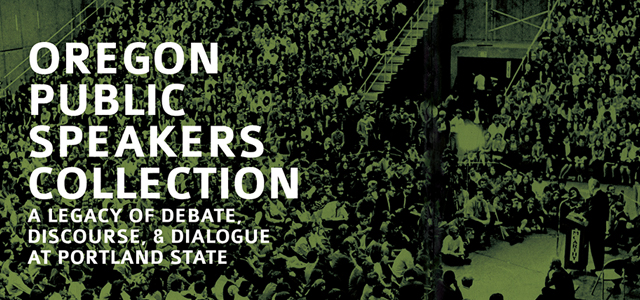Date
7-12-1978
Series
Ecosystems Lectures
Length
58 minutes
Notes
In the second of two lectures for the "Ecosystems" series of lectures sponsored by Sigma Xi- Earth Resources Ltd, John Rader Platt, an American physicist and biophysicist at University of Chicago, continues his discussion of scientific discoveries since 1945 and argues that these discoveries are inconsistent with the present-day nation-state. The lecture suggests that the opportunity to establish space colonies will only be available for the next thirty years and that it should be capitalized upon.
Transferred and preserved by Portland State University Library’s Special Collections with the generous support of the Institute of Museum and Library Services through the Library Services and Technology Act, administered by the Oregon State Library.
Subjects
Ecosystems, Outer space -- Exploration, Space colonies
Original Format
Reel to reel, 3.75 ips, 1/4 track, mono
Rights
This digital access copy is made available as streaming media for personal, educational, and non-commercial use only. It cannot be reproduced in any form, distributed or played for commercial purposes. It is made accessible because of one or more of the following situations: the rights are owned by State Board of Higher Education, on behalf of Portland State University; Portland State University has permission to make it accessible; it is made accessible for education and research purposes under fair use; or there are no known restrictions on use. In the event that previously unknown information is shared that may change the status of this item, it will be immediately removed from public view until pertinent rights issues are clarified.
Persistent Identifier
http://archives.pdx.edu/ds/psu/11452
Recommended Citation
Platt, John Rader, ""Needed Social Innovations (Lecture 2)"" (1978). Special Collections: Oregon Public Speakers. 193.
http://archives.pdx.edu/ds/psu/11452



Description
Transcript added June 25, 2020.
PSU Library Special Collections and University Archives presents these recordings as part of the historical record. They reflect the recollections and opinions of the individual speakers and are not intended to be representative of the views of Portland State University. They may contain language, ideas, or stereotypes that are offensive to others.